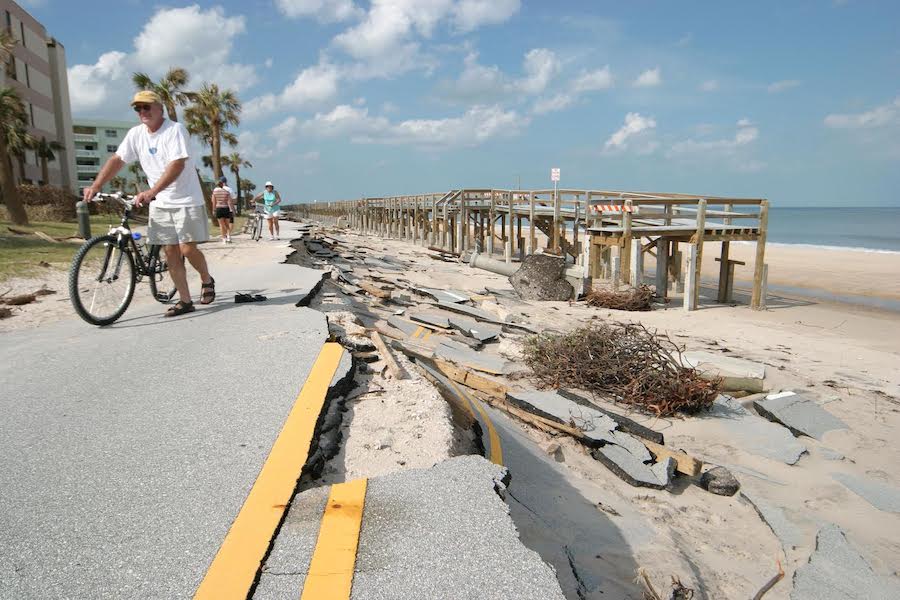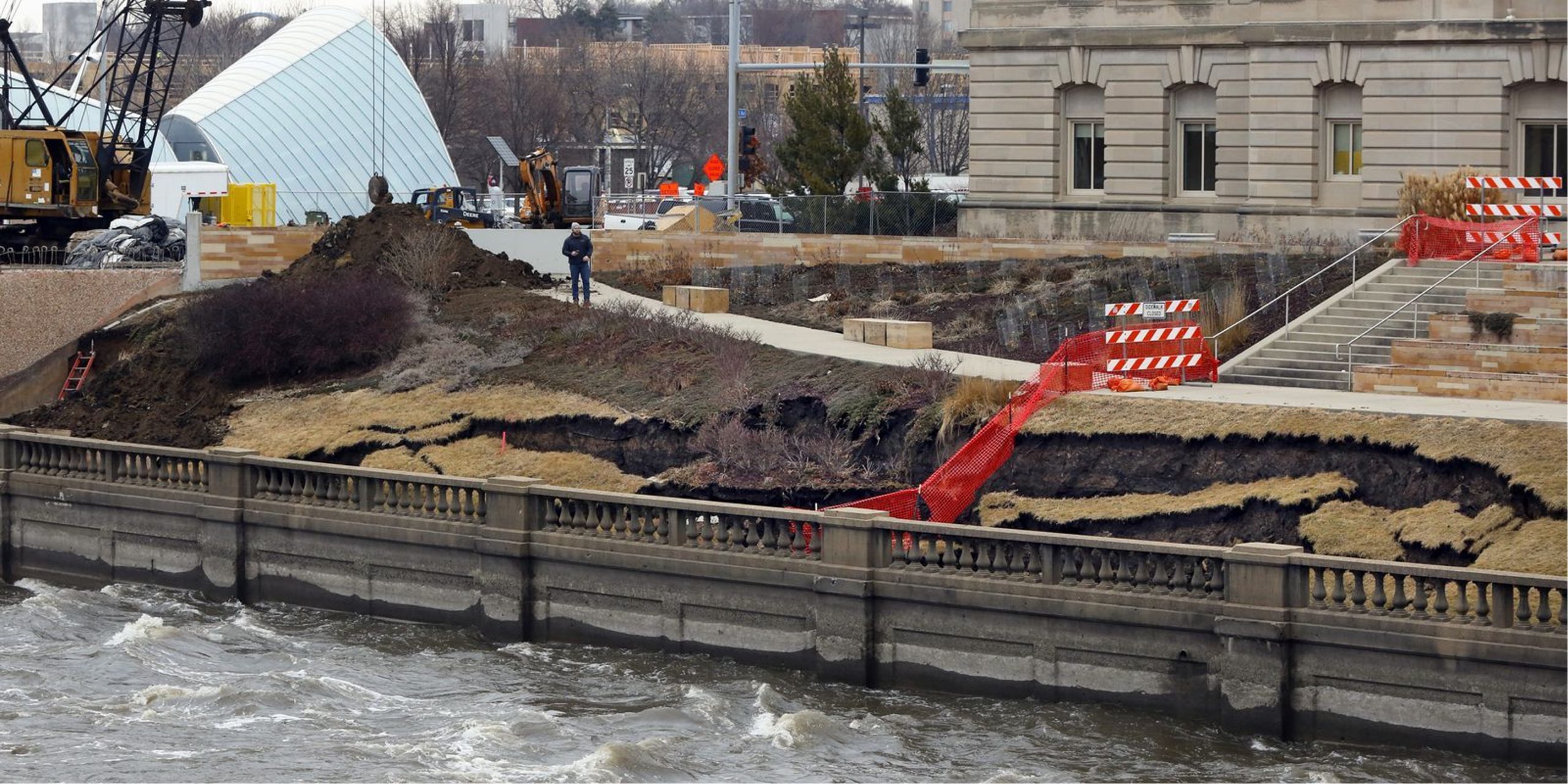The 6-Minute Rule for Shore Protect Team
Wiki Article
Getting The Shore Protect Team To Work
Table of ContentsShore Protect Team Can Be Fun For EveryoneAll About Shore Protect TeamIndicators on Shore Protect Team You Should KnowThe Basic Principles Of Shore Protect Team The Buzz on Shore Protect TeamGet This Report about Shore Protect TeamThe Buzz on Shore Protect Team
Reduction in residential or commercial property value: As the location tourism is affected by disintegration, so after that is the economic climate. Buyers are much less most likely to look for a coastline home that might be destroyed anytime by the approaching flooding and erosion emergency. In turn, residential or commercial property worth can drop exceptionally and influence the entire region.Whether a coastline is simply tiny and crowded or has to close entirely for the safety of the ecosystem and close-by buildings, this significantly affects tourism. Subsequently, local economies are influenced (https://gifyu.com/shrprtcttm). Risk of injury: The boosted risk of flooding and structural failures triggers an enhanced danger of injury to nearby visitors and area participants

Coastline stablizing is directly related to their work. Beachfront hotels: Due to the fact that shoreline erosion effects tourist, it impacts the success of beachfront hotels.
What Does Shore Protect Team Do?
Coastal commercial services: No tourists indicates no organization. Coastal state parks: State parks that exist along coasts are at risk of damages.Hard stabilization uses man-made frameworks as protection to control disintegration. A lot of types of hard stablizing like seawalls and sheet metal are not optimal for shoreline stablizing.
See This Report about Shore Protect Team
There's also insufficient evidence of their effectiveness relying on the kind of shoreline and local problems. Hard stabilization methods tend to be much more tough to install and don't match the natural aesthetic, sticking out like a sore thumb and hurting regional ecological communities in many circumstances. Beach nutrients is the process of adding shed sand and sediment back to coastlines after erosion has actually happened.TrapBags aid in the process of beach sustenance by safeguarding all-natural environments and enabling plants to grow. While this process can be pricey and is not irreversible, the pros have a tendency to outweigh the disadvantages. TrapBag barriers offer several properties that make them optimal for coastal and riverbank disintegration security. They're: Ecologically pleasant: You can use native soil both to border and to fill up the TrapBags.

Shore Protect Team Things To Know Before You Buy
Easy to install: Reduce of installment suggests TrapBags can be released rapidly in case of an emergency. They can additionally be set up without any type of heavy equipment. Budget friendly: TrapBags are optimal for both small and large areas of coastline. They offer an inexpensive solution to cover projects of any kind of size.Incorporated with a high building expense, this has actually brought about boosting use other soft design seaside monitoring choices such as coastline replenishment. Seawalls are created from various products, many typically reinforced concrete, stones, steel, or gabions. Various other possible building products consist of plastic, wood, light weight aluminum, fiberglass composite, and eco-friendly sandbags made of jute and coir. The ideal seawall style counts on location-specific elements, consisting of bordering erosion processes. There are 3 major types of seawalls: upright, rounded, stepped, and piles (see table below).
Natural obstacles, such as reef and mangrove forests, avoid the spread of tsunamis and the flow of seaside waters and minimized the flood and surge of water. A cost-benefit technique is an effective means to establish whether a seawall is proper and whether the advantages are worth the expenditure.
Some Known Details About Shore Protect Team
A seawall is a fixed attribute which can contrast with the dynamic nature of the shore and hinder the exchange of debris between land and sea. Advantages and disadvantages of seawalls according to Short (1999) Benefits Negative aspects Lengthy term option in comparison to soft beach sustenance (https://yoomark.com/content/shore-protect-team-bulkhead-pier-construction-houston-tx).
This can trigger coastlines to dissipate, providing them ineffective for coastline goers. Generally, seawalls can be a successful means to regulate coastal erosion, however only if they are created well and out of products that can withstand the pressure of ongoing wave energy. Some understanding is needed of the coastal processes and morphodynamics specific to the seawall location.
Get This Report about Shore Protect Team
The ideal seawall layout counts on location-specific facets, including surrounding erosion processes. There are 3 major kinds of seawalls: vertical, curved, stepped, and piles (see table below). A record published by the United Nations Setting Program (UNEP) suggests that the tsunami of 26 December 2004 created less damages in the locations where natural obstacles were present, such as mangroves, coral reefs or coastal vegetation.All-natural obstacles, such as coral reefs and mangrove forests, avoid the spread of tidal waves and the circulation of seaside waters and minimized the flood and surge of water. A cost-benefit approach is a reliable means to figure out whether a seawall is suitable and whether the advantages are worth the cost.
All about Shore Protect Team
A seawall is a fixed feature which can contravene the dynamic nature of the coast and hinder the exchange of sediment in between land and sea. The table listed below summarizes some favorable and adverse impacts of seawalls which can be made use of when comparing their performance with other coastal monitoring choices, such as coastline nourishment. [] Benefits and downsides of seawalls according to Short (1999) Advantages Drawbacks Long term remedy in comparison to soft beach nutrition. bulkhead repair.
This can trigger beaches to dissipate, rendering them pointless for coastline goers. Typically, seawalls can be an effective means to manage seaside disintegration, however only if they are constructed well and out of materials that can withstand the force of recurring wave energy.
Report this wiki page